#Rabbit Polyclonal
Text
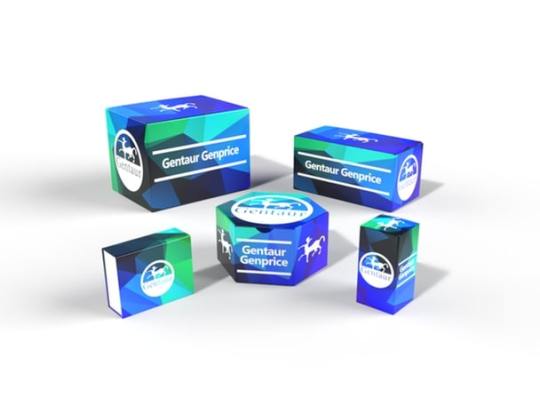
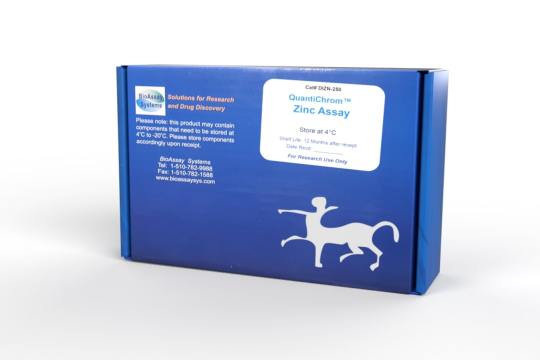
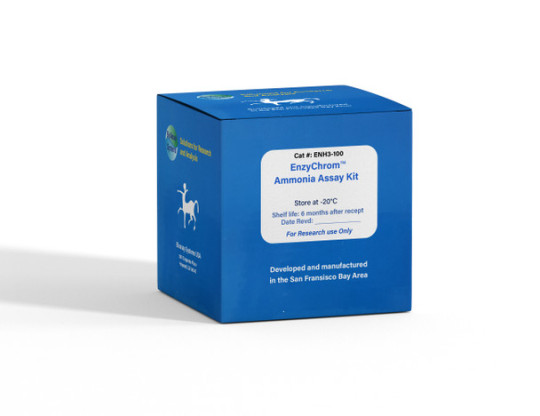
Gen Storeis part of the Gentaur Genprice group and supplies Quantichrome Assays, Reagents for antibody and Elisa research.
#Quantichrome Assay kit#Antibodies#Cell Culture Media#Assay Kit#Buffers#Elisas#Immunization#Oxidative Stress PCR Reagents#Peptide#Polyclonal Antibodies#Research Antibodies#Rabbit Polyclonal#Mouse Monoclonal#Western Blot#ELISA Assay
1 note
·
View note
Text
Benefit Enormously from the Vast Pool of Benefits of Antibody Services at Reasonable Prices from the Best Firm
Get busy with this post, to know every one of the pieces of data concerning the upsides of good quality Antibody Services relationship at sensible expenses from the best firm. Considering from where you can get the best and quality Antibody affiliations? To make sure to be sure you can’t go without being, you have come at the best spot. Everything that could be been your one-stop objective. They are the most awesome and strong name in such way.
The best company’s principal objective is to be an accepted associate supporting the investigation, indicative and medication networks with neutralizer creation organizations and assessment things. We are centered on giving quality results and amazing client help redesigning intelligent progression.
At, the best firm, we feel it is fundamental to interact with each and every one of our clients on a solitary reason. Client help is the way in to a productive endeavor. They are open in a grouping of designs including unconjugated and compound, biotinylated, and fluorescent structures for measures, for instance, ELISA, western smear, stream cytometry, multiplex, and immunohistochemistry.
At the best firm, we try to make your experience working with us as profitable and positive as could be anticipated. To that end we offer a collection of exploration office organizations to resolve your issues and work on the aftereffect of your endeavor. Whether you need help arranging your peptide, a clear development, then again if you truly need assistance with cultivating a cleaning technique, our client care gathering will very much love to help you. They bargain in the best rabbit anti-llama Biotin and Rabbit Polyclonal Antibody Production.
Invitrogen unfriendly to mouse discretionary antibodies are inclination refined polyclonal antibodies with by and large around depicted distinction for mouse immunoglobulin classes, subclasses, and segments. They are important in the acknowledgment, organizing, or refinement of the foreordained goal (fundamental immunizer). We offer adversary of mouse discretionary antibodies conveyed in various host species, including goat, ass, rabbit, chicken, rat, cow, and sheep. Thus, immediately, visit the site of the best firm managing in this today and find out about their administrations and organizations. You will be 100 percent happy with the nature of their administrations. Plan a meeting with them today.
0 notes
Text
Guide to Using Primary Antibodies in Denovo Technologies
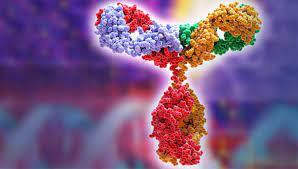
Primary antibodies are crucial tools in various research and diagnostic applications, enabling the detection and identification of specific target proteins. Denovo Technologies, a leading provider of life science products and services, offers a wide range of primary antibodies for use in diverse experimental techniques. In this guide, we will explore the usage and benefits of primary antibodies from Denovo Technologies, providing researchers with valuable insights into their application.
Understanding Primary Antibodies
Primary antibodies are immunoglobulins produced by B cells that bind specifically to a particular antigen. They are widely used in techniques such as Western blotting, immunohistochemistry (IHC), immunocytochemistry (ICC), flow cytometry, and enzyme-linked immunosorbent assay (ELISA). Primary antibodies play a crucial role in detecting and quantifying target proteins, enabling researchers to study various biological processes and disease mechanisms.
Denovo Technologies' Primary Antibodies
Denovo Technologies offers a comprehensive selection of primary antibodies, including monoclonal antibodies, polyclonal antibodies, recombinant antibodies, knockout (KO) validated antibodies, conjugated antibodies, loading control antibodies, and cell marker antibodies. Let's explore the key features and benefits of each category:
1. Monoclonal Antibodies:
Denovo Technologies provides over 25,000 monoclonal antibodies, including rabbit, rat, and mouse monoclonals. These antibodies offer high specificity and affinity, ensuring reliable and accurate results in various experimental techniques.
2. Polyclonal Antibodies:
With over 50,000 polyclonal antibodies available, including rabbit, goat, and mouse polyclonals, Denovo Technologies offers a diverse range of options. Polyclonal antibodies provide robust binding to multiple epitopes, enhancing the chances of successful protein detection.
3. Recombinant Antibodies:
Denovo Technologies' recombinant monoclonal antibodies are designed to decrease variability and increase reproducibility. With more than 1,600 unique targets available, researchers can obtain highly specific and reliable results.
4. Knockout Validated Antibodies:
For researchers studying gene function, Denovo Technologies offers over 400 knockout (KO) validated antibodies with confirmed specificity. These antibodies are essential for validating gene knockout experiments and ensuring accurate target protein identification.
5. Conjugated Primary Antibodies:
Denovo Technologies provides primary antibodies that are directly conjugated to over 40 unique fluorescent dyes or reporter enzymes. This eliminates the need for secondary antibodies, simplifying experimental workflows and reducing potential background noise.
6. Loading Control Antibodies:
To ensure equal loading of protein samples in Western blotting, Denovo Technologies offers a range of loading control antibodies. These antibodies target housekeeping proteins commonly used as internal controls, enabling accurate normalization of protein expression levels.
7. Cell Marker Antibodies:
Denovo Technologies' primary antibodies include a variety of cell marker antibodies, allowing researchers to identify specific cell types, organelles, or subcellular localizations. These antibodies aid in the characterization and understanding of cellular structures and functions.
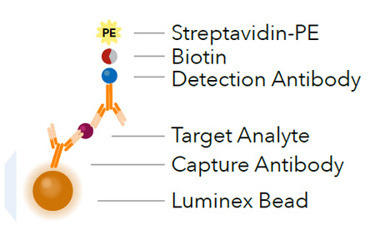
Conclusion
Using primary antibodies from Denovo Technologies enhances the precision and reliability of protein detection and identification in various research applications. Their extensive range of monoclonal, polyclonal, recombinant, knockout validated, conjugated, loading control, and cell marker antibodies caters to the diverse needs of researchers. By leveraging the high specificity, sensitivity, and quality of Denovo Technologies' primary antibodies, scientists can advance their research and gain valuable insights into the complexities of biological systems. Whether you are performing Western blotting, IHC, ICC, flow cytometry, or ELISA, Denovo Technologies' primary antibodies are indispensable tools for successful experimental outcomes.
#best base scope essay#luminex assays#luminex instrument#across the spiderverse#bioactivitytestingservices#luminex instruments#luminexinstruments#automatedmultiplexelisa#luminex kits#luminex custom services
0 notes
Text
How Advancements in Rabbit Polyclonal Production are Shaping Research
In the dynamic realm of scientific research, the quest for innovative tools and methodologies is ceaseless. One such pivotal advancement is seen in the field of Rabbit Polyclonal Antibody Production, where custom antibody development has become a linchpin in shaping the landscape of modern research methodologies. As scientists delve deeper into the intricacies of biological systems, the evolution of rabbit polyclonal antibodies emerges as a game-changer, offering unparalleled specificity and versatility.
Custom Antibody Development Tailoring Precision for Research Excellence: At the heart of this paradigm shift lies the custom antibody development process. Unlike monoclonal antibodies derived from a single cell line, rabbit polyclonal antibodies are generated by immunizing rabbits with the target antigen. This approach results in a heterogeneous mix of antibodies, each recognizing different epitopes on the antigen. The diversity achieved through this method grants researchers a potent tool for a wide array of applications, from Western blotting to immunohistochemistry.
The Versatility of Rabbit Polyclonal Antibodies: A Crucial Asset in Research, Rabbit polyclonal antibodies production, due to their unique process, exhibit high specificity and sensitivity. This characteristic makes them ideal for detecting multiple protein isoforms and post-translational modifications. The ability to recognize various epitopes provides a more comprehensive understanding of protein interactions, facilitating nuanced insights into complex biological processes.
Rapid Advancements in Techniques: Enhancing Custom Antibody Development, Recent strides in molecular biology techniques have catalyzed the refinement of rabbit polyclonal antibody production. Advanced purification methods and state-of-the-art immunization protocols have significantly improved the yield and specificity of antibodies. These developments not only streamline the production process but also contribute to the production of high-affinity antibodies, ensuring reliable and reproducible results in diverse experimental settings.
Final Thoughts: In the realm of scientific discovery, the role of rabbit polyclonal antibody production in shaping research is indisputable. As scientists strive for precision and versatility in their experiments, the custom antibody development process offers a bespoke solution. The advancements in techniques witnessed in recent years have not only bolstered the efficiency of production but have also elevated the quality and reliability of rabbit polyclonal antibodies. Researchers worldwide now have at their disposal a powerful tool that is reshaping the boundaries of what can be achieved in the laboratory.
The journey from antigen immunization to the production of rabbit polyclonal antibodies has traversed remarkable milestones, opening new avenues for exploration and understanding in the scientific community. As we witness the transformative impact of these antibodies on research methodologies, it becomes evident that the advancements in rabbit polyclonal antibody production are not just a scientific evolution; they are a catalyst for breakthroughs that redefine the possibilities within the realm of life sciences.
0 notes
Text
Antibody Production Market to Reach $58.35 Billion by 2031
Meticulous Research®—a leading global market research company, published a research report titled ‘Antibody Production Market by Product [Bioreactors (Single Use, Reusable), Chromatography, Filtration, Cell Lines, Media, Buffers, Resins], Antibody [Monoclonal, Polyclonal], Source [Mice, Rabbit], Process [Downstream, Upstream] – Global Forecast to 2031.
According to this latest publication from Meticulous Research®, the antibody production market is expected to grow at a CAGR of 11.4% from 2024 to reach $58.35 billion by 2031. The growth of this market is driven by growing demand for targeted antibodies, increasing investments in R&D by pharma & biotech companies, high burden and growing prevalence of cancer and autoimmune diseases, increasing use of immunoassays, and advancements in bioprocessing technologies. However, the high cost of antibody production and stringent regulatory framework restrain the growth of this market.
Furthermore, growing applications of antibodies in clinical trials and medical research, significant opportunities from developing countries, and growing risk and prevalence of infectious diseases are expected to generate growth opportunities for the players operating in this market. However, the complex nature of monoclonal antibodies poses a challenge for market stakeholders for antibody production.
Key Players
The key players operating in the antibody production market are Thermo Fisher Scientific Inc. (U.S.), Agilent Technologies, Inc. (U.S.), Merck KgaA (Germany), Eppendorf SE (Germany), Sartorius AG (Germany), Danaher Corporation (U.S.), Waters Corporation (U.S.), Shimadzu Corporation (Japan), Solaris Biotechnology Srl (Italy), Infors AG (Switzerland).
Antibody Production Market: Future Outlook
The global antibody production market is segmented by product (instruments [bioreactors {Reusable Bioreactors, single-use bioreactors}, Chromatography systems, filtration system, and other instruments], consumables {cell lines & media, buffers & reagents, chromatography columns & resins, and other consumables}), Antibody Type {monoclonal antibodies, polyclonal antibodies, and recombinant antibodies}, by source {mice, rabbit, and other sources}, by process {downstream and upstream }, end user {pharmaceutical & biotechnology companies, clinical research organizations & contract development & manufacturing organizations, and academic & research institutes} and geography. The study also evaluates industry competitors and analyzes the market at the regional and country levels.
Based on product, the antibody production market is segmented into instruments, consumables, and software. In 2024, the instruments segment is expected to account for the largest share of the market. The need for high volume production of antibodies and scale of the production for commercial use, the need for separation of purification and isolation of antibodies, and the growing need for mass production of antibodies for therapeutic applications are the major factors attributed to the large segment share.
Based on antibody type, the antibody production market is segmented into monoclonal antibodies, polyclonal antibodies, antibody segments, and recombinant antibodies. The monoclonal antibodies segment is expected to grow at the highest CAGR during the forecast period. This growth can be attributed to the growing application of monoclonal antibodies for the treatment of diseases and disorders, the growing use of monoclonal antibodies for cancer treatment, and the increasing focus of pharma & biotech companies on the development of monoclonal antibody-based therapeutics.
Based on source, the antibody production market is segmented into mice, rabbit, and other sources. In 2024, the mice segment is expected to account for the largest share of the market. This large share is attributed to the ready availability, low cost, short production times for mouse antibodies, ease of mouse husbandry and as the genetic approaches to engineering antibodies through recombinant technologies are more established for mice.
Based on process, the antibody production market is segmented into upstream and downstream. In 2024, the downstream segment is expected to account for the largest share of the market. This large share can be attributed to the high preference for downstream processing as it is used for recovery and purification of biosynthetic products, including antibodies from natural sources such as animal or plant tissue or fermentation broth, including the recycling of salvageable components and the proper treatment and disposal of waste.
Based on end user, the antibody production market is segmented into pharmaceutical & biotechnology companies, clinical research organizations and contract development & manufacturing organizations, and other end users. The pharmaceutical & biotechnology companies’ segment is expected to grow at the highest CAGR during the forecast period. The major factors attributed to this growth are the expansion of antibody manufacturing facilitates, increasing R&D investments by pharma & biotech companies, the growing prevalence of chronic and infectious diseases, and the need for the development of antibody-based therapeutics for these diseases. In addition to that, the initiatives by the pharma and biotech companies to launch antibody-based therapeutics are further expected to drive the segment growth. For instance, in 2022, Brii Biosciences Limited (China), a biotech company involved in developing therapies and TSB Therapeutics (Beijing) Co., Ltd. (China), launched amubarvimab/romlusevimab combination, a long-acting COVID-19 neutralizing antibody therapy in China.
Geographic Review
This research report analyzes major geographies and provides a comprehensive analysis of the antibody production market in North America (U.S. and Canada), Europe (Germany, France, U.K., Italy, Spain, and RoE), Asia-Pacific (Japan, China, India, and RoAPAC), Latin America (Brazil, Mexico, and RoLATAM), and the Middle East & Africa. North America is expected to dominate the antibody production market in 2024, followed by Europe and Asia-Pacific. Technological advancements in bioprocessing, the high number of industry-academia collaborations for research and development of antibodies, the high prevalence of chronic diseases, and the high demand for biologics are expected to support North America’s largest share.
Download Sample Report Here @ https://www.meticulousresearch.com/download-sample-report/cp_id=5769
Key Questions Answered in the Report:
What is the current revenue generated by the products for antibody production across the globe?
At what rate is the demand for products for antibody production projected to grow over the next 5–7 years?
What is the historical market size and growth rate of the global antibody production market?
What are the major factors impacting the growth of this market at the global and regional levels? What are the major opportunities for existing market players and new entrants in the market?
Which segments in terms of product, antibody type, process, source, and end user are creating major traction for the vendors in this market?
What are the key geographical trends in this market? Which regions/countries are expected to offer significant growth opportunities for the vendors operating in the global antibody production market?
Who are the major players in the global antibody production market? And what are their product offerings in the antibody production market?
What are the recent strategic developments in the global antibody production market, and what are the impacts of these developments on the global market?
Contact Us:
Meticulous Research®
Email- [email protected]
Contact Sales- +1-646-781-8004
Connect with us on LinkedIn- https://www.linkedin.com/company/meticulous-research
0 notes
Text
Anti-HRP Rabbit Polyclonal Antibody
Anti-HRP Rabbit Polyclonal Antibody
Catalog number: B2014966
Lot number: Batch Dependent
Expiration Date: Batch dependent
Amount: 100 uL
Molecular Weight or Concentration: N/A
Supplied as: Liquid
Applications: molecular tool for various biochemical applications
Storage: -80°C
Keywords: Anti-HRP Rabbit Polyclonal Antibody
Grade: Biotechnology grade. All products are highly pure. All solutions are…
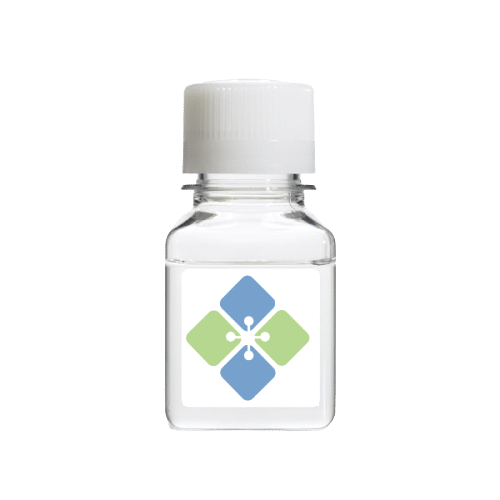
View On WordPress
0 notes
Text
The Evolution of Antibody Technology: A Comprehensive Overview from Polyclonal to Monoclonal Antibodies
In the dynamic realm of life sciences, antibodies play a pivotal role in unlocking the mysteries of biological processes. Over the years, antibody technology has evolved significantly, providing researchers with powerful tools for understanding cellular functions, unraveling disease mechanisms, and advancing cancer research. This article takes you on a journey through the fascinating evolution of antibody technology, highlighting the transition from polyclonal to monoclonal antibodies and exploring the diverse applications in life science research.
Polyclonal Antibodies – The Early Players:
Polyclonal antibodies (pAbs) were the pioneers in antibody technology, first gaining prominence for their ability to recognize multiple epitopes on a target antigen. Derived from the immune response of animals, typically rabbits or goats, polyclonal antibodies were invaluable in early life science research. These antibodies formed the backbone of various assays, aiding scientists in detecting and understanding the presence of specific proteins in complex biological samples.
However, as research needs grew more sophisticated, the limitations of polyclonal antibodies became apparent. Batch-to-batch variability and potential cross-reactivity with non-target proteins posed challenges for reproducibility, prompting scientists to seek alternatives.
Monoclonal Antibodies – Precision and Specificity:
Enter monoclonal antibodies (mAbs), a groundbreaking development in antibody technology. Unlike polyclonals, monoclonal antibodies are derived from a single clone of cells, ensuring a high degree of specificity and uniformity. This advancement revolutionized the field, offering researchers a precise tool for targeted detection and therapeutic applications.
Monoclonal antibodies are produced through hybridoma technology, where a single type of immune cell is fused with a myeloma cell. The resulting hybridoma cells produce identical antibodies, each designed to bind to a specific epitope with unparalleled accuracy. This level of precision not only improved the reliability of experimental results but also paved the way for therapeutic applications in cancer research and beyond.
Applications in Cancer Research:
Cancer research stands as one of the primary beneficiaries of antibody technology. Monoclonal antibodies, in particular, have played a crucial role in the development of targeted cancer therapies. Antibodies designed to recognize cancer-specific antigens can be used for diagnostic purposes, imaging, and as therapeutic agents.
Life Science Products – A Broad Spectrum of Tools:
As antibody technology advanced, the life science industry responded with a diverse array of products catering to various research needs. Secondary antibodies, for instance, became essential companions to primary antibodies, enhancing signal detection in assays. These secondary antibodies, often conjugated with fluorescent dyes or enzymes, amplify the signal generated by the primary antibody, enabling more sensitive detection methods.
Moreover, the advent of specialized products such as phospho-specific antibodies, acetyl products, methyl products, and cleaved products opened new avenues for exploring post-translational modifications. Researchers could now delve deeper into intracellular signaling pathways, understanding the nuances of protein activation, and uncovering the molecular intricacies of diseases, including cancer.
Conclusion:
In conclusion, the evolution of antibody technology has been a transformative journey from the broad recognition capabilities of polyclonal antibodies to the precision and specificity offered by monoclonal antibodies. This progress has significantly impacted cancer research and various life science applications. The availability of a diverse range of antibodies, including secondary antibodies and those targeting specific post-translational modifications, has empowered researchers to explore the intricacies of cellular functions with unprecedented accuracy.
As we continue to push the boundaries of scientific discovery, the evolving landscape of antibody technology remains at the forefront, promising even more breakthroughs in understanding the complexities of life at the molecular level.
#AntibodyEvolution#MonoclonalRevolution#CancerResearch#LifeScienceInnovations#PolyclonalToMonoclonal
1 note
·
View note
Text
Biotin-conjugated primary antibody
Biotin-conjugated primary antibody
Primary antibodies are immunoglobulins that bind to a specific antigen of interest, such as protein, peptide, small molecule. And, they are commonly unconjugated. A primary antibody can recognize and bind with high affinity and specificity to purify, detect, and measure the antigen. Using a variety of hosts, such as mouse, rabbit, goat, or chicken, primary antibodies are available as polyclonal or monoclonal relying on their applications.
0 notes
Text
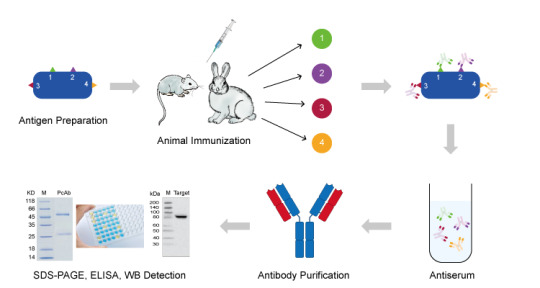
Polyclonal antibody production
Custom polyclonal antibody production can be achieved by making use of healthy and flexible immunization procedures. With the increasing competition in the industry, most science service providers are committed to providing users with several protocol packages at the most competitive prices. They also deliver their packages for immunization schedules for a variety of animal species, such as goats, rabbits, mice, etc., for creating custom polyclonal antibodies to protein and peptide antigens.
#antibody production#polyclonal antibody production#aqueous adjuvant#quick immune adjuvant#monoclonal antibody production#freund's incomplete adjuvant#incomplete freund's adjuvant#freund's adjuvant#complete freund's adjuvant#freund's complete adjuvant
0 notes
Text
How to Find the Best Antibody Products
These antibodies are extremely specific and are often used in research applications. Polyclonal antibodies are produced by multiple different clones and can recognize multiple epitopes. These antibodies are often used in diagnostic applications. Recombinant antibodies are created by combining the genes from two different species. Rabbit Antibody Production has a wide range of applications including research, diagnostics, and therapeutics. Monoclonal antibody therapeutics are created using monoclonal antibodies that bind to specific disease-causing proteins.
0 notes
Text
Custom Antibody Service Market Expected to Expand at a Steady 2023-2028
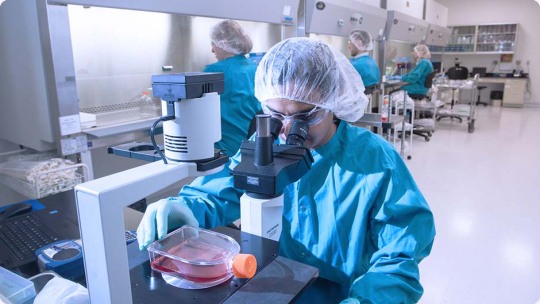
The immune system produces antibodies in response to pathogen invasion. Antigens are the collective term for the invasive bacteria, viruses, or other foreign molecules. Antibodies are proteins, or polypeptides which have specific antigen recognition sites. It is possible to have antibodies made using custom antibody production when an antibody is required against a particular antigen but it is not offered by a supplier. These antibodies can be either polyclonal or monoclonal, depending on how they are produced and harvested. Polyclonal antibodies are capable of recognizing multiple sites on an antigen. They are derived from different B-cell lineages. Monoclonal antibodies recognize only one epitope or site on an antigen, and are derived from a single B-cell line.
Global custom antibody service market is estimated to be valued at US$ 444.85 Million in 2022 and expected to reach US$ 930.46 million by 2030, witnessing a CAGR of 9.7 % over the forecast period (2022-2030).
Market players are indulged in launching customized services for the development of custom antibodies that are used for research purposes, and this is expected to create lucrative growth opportunities in the custom antibody service market
The increase in organic strategies like new customized service launch is expected to drive the growth the market. For instance, in November 2020, AMSBIO, a leading provider of quality life science research reagents and services, announced the launch of development services for rabbit and mouse recombinant monoclonal antibodies. The DimAb development platform, a technology revolution for monoclonal antibody development, which differs from traditional hybridoma fusion methods, is the foundation for the creation of recombinant monoclonal antibodies. It can extract IgG genes from B cells of animals that have received an immunization. These antibodies aid in the creation and marketability of pharmaceuticals.
Global Custom Antibody Service Market: Restraint
Challenges involved in the production of customized antibodies is the major factor hampering the growth of the custom antibody services market. Some challenges includes:
· Low yield: In vitro production cultures often yield less antibody/ml than in vivo ascitic fluid method
· Cell death: Maintaining optimal cell growth and viability is essential for high antibody yields and an optimized process
· Contamination: In vitro production cultures are subject to risks of contamination associated with long-term cell cultures
· Time-consuming: In vitro production cultures often have to be maintained over a long period of time in order to yield desired quantities of antibodies
0 notes
Text
Established enhance activation upon man erythrocytes throughout themes along with endemic lupus erythematosus and a history of auto-immune hemolytic anemia
Picked the latest applying Stress to be able to one-phase lipid systems, gel/fluid period separating, water ordered/liquid unhealthy phase separating (fat rafts), complex programs made up of EX 527 ceramide and mobile or portable filters tend to be shown to demonstrate your wealth of information that could be inferred through meticulously developed FRET research regarding tissue layer domain names. (Chemical) 2009 Elsevier W./. Just about all privileges reserved.Your amino critical area (ATD) of ionotropic glutamate receptor (iGluR) subunits resides with the extracellular area distal on the membrane. The particular ATD can be structurally and functionally probably the most divergent region of the iGluR subunits. Structural studies about full-length GluA2 and the ATDs through 3 iGluR subfamilies have simplify the way the ATD allows for subunit construction, fits allosteric modulator materials, and also regulates gating qualities. The following current improvements in structurel and practical studies upon iGluR ATDs are generally reviewed.Man ether a go-go (hEAG) potassium programs tend to be mostly expressed within human brain but additionally regularly overexpressed in sound tumors, that could reveal their particular potential price regarding most cancers prognosis and also remedy. hEAG1, one person in the hEAG subfamily, has been shown to lead to neoplastic process. Here we record your appearance of hEAG1 in human being osteosarcoma recognized by way of a new polyclonal antibody. The particular full-length hEAG1 cDNA ended up being cloned through human being osteosarcoma mobile collection MG63 by RT-PCR along with portrayed in Escherichia coli because His / her tagged necessary protein. The 6His-hEAG1F health proteins had been filtered by dime agarose along with used as the antigen to immunize rabbits following common practices. The acquired antiserum can discover hEAG1 exogenously expressed throughout HEK 293 cells. In addition, the particular polyclonal antibody was used to judge hEAG1 phrase within 44 man osteosarcoma specimens and 19 osteochondromas types through immunohistochemistry. hEAG1 has been indicated within 71.4% (30/42) osteosarcoma, and 16.8% (3/19) osteochondromas. Moreover, statistical investigation says hEAG1 term was not determined by age, sex, site, histology, grade and kind inside the osteosarcoma examples. Our own files prove that hEAG1 is actually overexpressed throughout human being osteosarcoma and the hEAG1 polyclonal antibody supplies a good tool for additional depiction of the oncogenic function of hEAG1 throughout osteosarcoma.Fibroblast growth factor 12 (FGF23) accounts for phosphate wasting and also the phenotypic modifications affecting individual conditions including X-linked hypophosphatemia (XLH). Targeted overexpression involving fischer high-molecular weight fibroblast growth factor Only two isoforms (HMW isoforms) throughout osteoblasts led to any transgenic computer mouse button together with phenotypic adjustments much like XLH, which include greater FGF23, hypophosphatemia, along with rickets/osteomalacia. The purpose of this study ended up being determine regardless of whether HMW isoforms also reduced mineralized bone creation through phosphate-independent results inside bone fragments marrow stromal tissue (BMSCs) simply by modulating FGF23/FGF receptor (FGFR)/extracellular signal-regulated kinase (ERK) signaling. To discover when lowered bone fragments enhancement inside BMSC nationalities through HMW transgenic rats could be rescued simply by hindering this kind of path, a great FGF23 neutralizing antibody, the FGFR tyrosine kinase inhibitor SU5402 and the mitogen-activated health proteins kinase (MAPK) chemical PD98059 were utilised.
1 note
·
View note
Text
Exploring the Versatility of Primary Antibodies with Denovotec
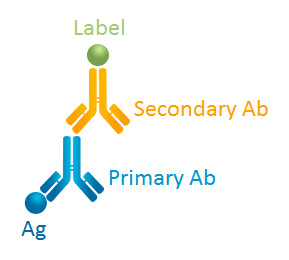
In the field of biological sciences research, primary antibodies are essential for deciphering the intricate workings of biological systems. They are essential instruments for identifying and examining certain target proteins, giving scientists important new understandings of how cells function. A prominent supplier of life science goods and services in India, Denovotec provides a wide variety of primary antibodies that enable scientists to confidently and precisely investigate the large field of biological study.
Brief about Denovotec’s primary antibody services
At the forefront of contemporary scientific discoveries, primary antibodies have a wide range of applications in diverse fields of study. The selection of primary antibodies offered by Denovotec is extensive and includes both monoclonal and polyclonal antibodies in addition to recombinant antibodies.
These antibodies have undergone extensive development and validation to satisfy the exacting standards of the scientific community.
Cracking the Code of Cellular Mysteries
Researchers can explore the complex realm of cellular processes and comprehend the functions of certain proteins in health and illness by utilizing Denovotec's main antibodies. The adaptability of Denovotec's primary antibodies enables researchers to solve puzzles related to the cell, whether they are examining the signaling pathways involved in the development of cancer, the role of important enzymes, or the dynamics of immune responses.
A Vast Selection of Antibodies under Denovotec
With such a large selection of primary antibodies, Denovotec guarantees that researchers may locate the perfect antibody for their particular study requirements. This collection has a wide variety of monoclonal antibodies that come from sources like mice, rats, and rabbits. Because of the remarkable specificity of these monoclonal antibodies, researchers can safely identify their target proteins using a variety of experimental methods.
Furthermore, Denovotec's library of polyclonal antibodies, which comes from goat, mouse, and rabbit, provides a wider variety of epitope recognition, increasing the likelihood of success in various experimental configurations. Recombinant antibodies are now available, which increases alternatives and reduces variability in research studies by promoting increased repeatability.
Denovotec is aware of how critical trustworthy study findings are. To guarantee their specificity and efficacy, their main antibodies go through stringent validation procedures. Numerous scientific publications have cited these antibodies extensively, indicating their high caliber and dependability. Researchers can pursue their scientific inquiry with confidence knowing that Denovotec will stand behind their products with a 100% guarantee.
Attached primary antibodies and Specialized Applications
Denovotec provides a selection of primary antibodies that are directly attached to distinctive fluorescent dyes or reporter enzymes in order to significantly improve experimental efficiency. As a result, secondary detection reagents are no longer required, streamlining experimental procedures and saving significant time and money. Using Denovotec's conjugated primary antibody, researchers can perform immunohistochemistry (IHC), immunocytochemistry (ICC), Western blotting, flow cytometry, ELISA, and more.
Sample Size Antibodies and Loading Controls
Denovotec understands that before investing in greater amounts of antibodies, early testing is crucial. They provide sample size antibodies to help with this, enabling researchers to assess antibody performance prior to making a bigger purchase. Their collection also comprises increasing data interpretation and accuracy, loading control antibodies, and guaranteeing uniform gel loading in Western blot investigations.
Conclusion
Primary antibodies are an invaluable tool in the toolbox of researchers seeking to advance science. With the wide spectrum of primary antibodies offered by Denovotec, scientists in India can confidently and precisely delve into the complex realm of biology. Denovotec's dedication to quality, adaptability, and validation is transforming the way scientists solve cellular riddles and advance a wide range of scientific fields. Researchers set out on a voyage of discovery by selecting Denovotec's principal antibodies, opening doors to new understandings of life and revolutionizing scientific research in India and abroad.
#best base scope essay#luminex instrument#luminex assays#Luminex Instruments#Luminex Custom Services#Automated Multiplex Elisa#Luminex Kits#Luminex Assays
0 notes
Text
rabbit antibody production
Dive into groundbreaking research with Capralogics Inc.'s rabbit antibody production services. We specialize in delivering high-quality, custom antibodies tailored to your specific needs. Trust Capralogics to be your partner in advancing scientific discovery through precise and reliable rabbit antibody production.
0 notes
Text
Global Antibody Drug Discovery Market By Type, Application, and Report
The global Antibody Drug Discovery market was valued at USD 125.7 billion in 2020 which expected to reach USD $208.6 billion by 2027 at a CAGR 10.5% from 2020-2027
Monoclonal antibodies have grown in importance as treatments for cancer, inflammation, and a variety of other disorders, and they now account for a growing portion of the most profitable pharmaceutical industry. The expanding application scope of research antibodies in stem cells, cancer, immunology, and neurobiology has emerged as a major driving force for market expansion globally.
Get a Sample Copy of this Report@ https://qualiketresearch.com/request-sample/Antibody-Drug-Discovery-Market/request-sample
Market Drivers
Growing R&D expenditure in the Pharma and Biopharma companies.
The majority of pharmaceutical, biopharmaceutical, and medical device companies devote significant resources to the development of new drugs and devices. The pharmaceutical industry spends a lot of money on research and development.
Pharmaceutical companies invest in research and development in order to bring high-quality, innovative products to market.
Pharmaceutical and biopharmaceutical companies are opting for fully integrated or functional outsourcing Secondary for drug discovery and development, from the early development stage to the late-stage development phase, due to rising R&D spending.
Market Restraint
Due to the general higher attrition rate of candidates during the development phase, drug discovery Secondary come at a high cost. Furthermore, clinical trials for rare disease research necessitate the recruitment of a specific candidate group. Furthermore, the success rate is extremely low, as is the number of approved drugs. This will be extremely expensive.
Impact of COVID-19
Countries' health systems are rapidly investing in research and development to combat the COVID-19 pandemic. CHEMBL, ZINC, FDA-approved drugs, and molecules in clinical trials were all screened for potential compounds.
Drugs for the treatment of COVID-19 are being developed by screening both novel and existing drugs for their ability to alleviate symptoms and stop viral replication. As a result of the ongoing pandemic, the desire to find a cure for COVID-19 is expected to have a positive impact on the Antibody drug discovery market.
Market Segmentation
The Global Antibody Drug Discovery Market is segmented into Process and Methods, Technology Outlook. Based on the Process and Methods, the market is segmented into Antibody Discovery Process, Antibody Discovery Methods Transgenic Animal-Based Method, and Single B Cell-Based Method. Further, market is segmented into The Technology Outlook, the market is segmented into Immunohistochemistry, Immunofluorescence, Western Blotting, Flow Cytometry, Immunoprecipitation, ELISA, Other Technologies. Residue Type, the market is segmented into Primary, Secondary. By Type the market is segmented into Monoclonal Antibodies, Polyclonal Antibodies, Bispecific Antibodies. by Application the market is segmented into Outlook Infectious Diseases, Immunology, Oncology, Stem Cells, Neurobiology, Other Applications.by End User the market is segmented into Pharmaceutical and biotechnology companies, Research laboratories ,Other. By Source the market is segmented into Outlook Mouse, Rabbit, Goat, and Other Sources
Regional Analysis
Global Antibody Drug Discovery Market is segmented into five regions such as North America, Latin America, Europe, Asia Pacific, and Middle East & Africa. The United States and Canada, which are among the main markets for research antibodies, dominate North America. The research antibodies market in the United States and Canada is booming, thanks to rising investments in the development of structure-based drug design models, increased research in the fields of primary and secondary antibodies, and a growing focus of stakeholders on research projects involving proteins associated antibodies, biomolecules, and genes.
Get Discount on this Report@ https://qualiketresearch.com/request-sample/Antibody-Drug-Discovery-Market/ask-for-discount
Key Players
Various key players are listed in this report such as 10x Genomics, Berkeley Lights, Adimab, Alloy, Hifi Bio, Biocytogen, Genscript, Abveris, Lake Pharma, Charles River, Wuxi Biologics, Twist Bioscience, Ligand, Evotech
Market Taxonomy
By Residue Type
Primary
Secondary
Type
Monoclonal Antibodies
Polyclonal Antibodies
Bispecific Antibodies
By Process and Methods
Antibody Discovery Process
Target Selection and Validation
Hit Generation
Lead Selection
Lead Optimization
Humanization
Affinity Maturation
Fc Engineering
Lead Characterization
Candidate Selection
Antibody Discovery Methods
Hybridoma Method
In vitro Display Method
Phage Display
Yeast Display
Ribosomal Display
Transgenic Animal-Based Method
Single B Cell-Based Method
By Technology Outlook
Immunohistochemistry
Immunofluorescence
Western Blotting
Flow Cytometry
Immunoprecipitation
ELISA
Other Technologies
By Application Outlook
Infectious Diseases
Immunology
Oncology
Stem Cells
Neurobiology
Other Applications
By End User
Pharmaceutical and biotechnology companies,
Research laboratories
Other
By Source Outlook
Mouse
Rabbit
Goat
Other Sources
By Region
North America
Latin America
Europe
China
Asia Pacific
Middle East & Africa
Key Questions Addressed by the Report
What are the Key Opportunities in Global Antibody Drug Discovery Market?
What will be the growth rate from 2020 to 2027?
Which segment/region will have highest growth?
What are the factors that will impact/drive the Market?
What is the competitive Landscape in the Industry?
What is the role of key players in the value chain?
Browse Full Report https://qualiketresearch.com/reports-details/Antibody-Drug-Discovery-Market
0 notes
Text
Anti-DTBTA-Eu3+ Rabbit Polyclonal Antibody
Anti-DTBTA-Eu3+ Rabbit Polyclonal Antibody
Catalog number: B2014911
Lot number: Batch Dependent
Expiration Date: Batch dependent
Amount: 250 uL
Molecular Weight or Concentration: N/A
Supplied as: Liquid
Applications: molecular tool for various biochemical applications
Storage: -20°C
Keywords: Anti-DTBTA-Eu3+ Rabbit Polyclonal Antibody [2.5mg/mL in PBS(-)] (Preservative : 0.1% NaN3)
Grade:…

View On WordPress
0 notes